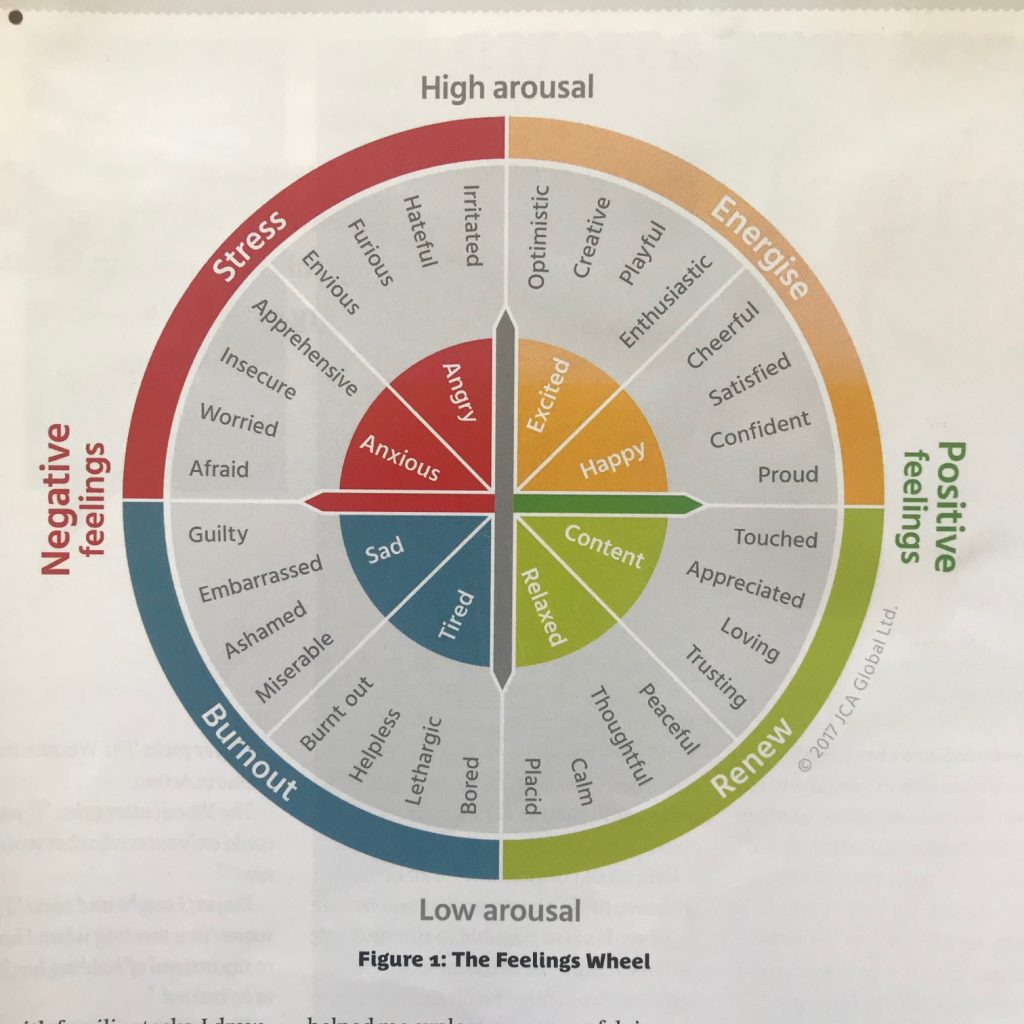Many of us have lived through chaotic times at work with mergers, changes in structures and who is in charge at work. Nothing compares to what we are living now. We are affected in most aspects of our life. For some it is a matter of life and death. Some of us are facing our own mortality for the first time and it is a shock.
In the past William Bridges’ model of change has been helpful to me – in a simplified form. He says that to move from an old way of being to a new one we have to pass through a transition stage. We don’t make it to the other side of the transition stage if we don’t express the feelings that come with that change. For some changes this can be positive feelings and so maybe easier to manifest (happiness, excitement). For the changes we are undergoing, restriction to our homes, enormous uncertainty, no sense of when this will end and all the rest, our feelings may be more negative: frustration, anxiety, sadness, fear, anger, boredom.
We need to find a way to express these feelings to be able to move forward. The changes are multiple so this process may be slow because we will encounter another shift in what is happening just as we have made sense of the previous change. I have had a sense of inertia some days – not being able to move forward because I need time to tune in to what is happening and my feelings about it. Maybe you have had this sense too. Just understanding the basic information about the virus and its impact is a process which has been changing because of multiple sources of information, not all accurate.
So how do we do this? First we need to identify the feelings we are having and what the changes are that have triggered them (in an ideal world a psychologist can help us do this). We can keep a journal to note a few lines a day. Are we good at identifying emotions we are feeling – not always – it takes practice and may be harder when we are under stress. I include a photo of the feelings wheel from JCA Global which you may find helpful to do this. Ten minutes each day to focus on this can make a big difference. This is part of looking after our psychological health.

What happens if we don’t identify and express our feelings? – they are likely to leak out at the wrong moment – maybe mishandling a delicate work situation or shouting at our kids when they have done nothing wrong.
We are all going through this to varying degrees – we will all experience this slightly differently from each other – so the chances of a clash of emotions are higher than usual with work colleagues, our families and partners. We will all fall into this trap at some point probably. So we need to be ready to apologise and recognise we are dealing with an extremely challenging set of circumstances.
It is important to express strong feelings we are having because they are often closely linked to our values and personal standards. They can be motors for positive change and help for planning in these unprecedented times. Recently I worked with a doctor to enable her to express her anger and frustration to her superiors because administrative staff in contact with patients were not being given the same protection from the virus as nurses and doctors. She got them to change what they were doing and was true to her values and emotions. She was unused to expressing negative emotions at work, being more of a natural cheerleader, so she was taken seriously. She worked with me to find her own way of expressing this ‘negative ‘ emotion to bring about a positive change.
If you know people working in the NHS who need a safe space to work out their feelings and their next steps then I am offering free coaching sessions – contact in this website.
Leave a Reply